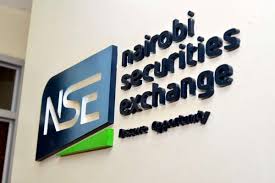Foreign investors have shown renewed confidence in Kenya’s capital market after years of weak participation, as their purchases of shares at the Nairobi Securities Exchange (NSE) hit a four-year high in August 2025. According to data published and confirmed by capital market analysts, net foreign purchases stood at Sh1.6 billion during the month, making it the highest inflow since 2019. This marked a significant turnaround for the NSE, which has struggled with prolonged periods of foreign exits in recent years.
Market observers noted that foreign investors had been net sellers almost consistently for the past four years. A similar but smaller positive trend was recorded in June 2025 when foreign investors made net purchases worth Sh820 million. The strong August entry shows that international interest in Kenyan equities is reviving, despite global and domestic challenges. Analysts believe the easing of trade war fears that previously affected global markets, including tariffs once associated with former U.S. President Donald Trump’s policies, helped foreign investors to look again at African stock opportunities.
The renewed activity focused largely on blue-chip companies and liquid stocks that traditionally attract foreign buyers. Big firms in the banking sector, telecommunications, and other high-value counters at the NSE became the top targets for overseas investors seeking diversification. Market experts said the foreign inflows would help support liquidity in the stock market, raise company valuations, and encourage long-term confidence in Kenya’s financial markets.
For years, the Nairobi Securities Exchange has been one of the most vibrant bourses in East Africa, but sustained foreign exits since 2019 weakened investor sentiment and slowed trading momentum. Many companies saw their share prices under pressure as a result of reduced demand. The August rally, however, is expected to provide relief and send a positive signal to both local and international stakeholders. Analysts say it could restore momentum and give the market a much-needed boost after a challenging period.
Kenya’s economy has long relied on foreign investment to supplement local savings, especially in areas like infrastructure, banking, and manufacturing. As of 2022, foreign direct investment in Kenya was valued at about USD 10.4 billion, representing around 9.5 percent of the country’s GDP. While foreign portfolio investment at the NSE is different from direct investment, both remain essential for economic growth, job creation, and capital formation. The renewed inflow into the stock market is therefore seen as an encouraging development for the wider economy.
Market regulators and financial experts have emphasized the need for Kenya to take advantage of this new wave of interest by improving the investment environment. Proposals include better corporate governance, increased transparency in financial reporting, and policies that make it easier for foreign investors to access the market. Already, the NSE has taken steps to modernize its trading systems and attract a wider pool of investors. For example, the exchange introduced fractional share ownership, which allows smaller investors to buy portions of expensive shares, thereby opening up the market to more participants.
The recent rise in foreign inflows has also sparked discussions about Kenya’s potential to strengthen its position as a regional financial hub. Increased participation by global investors could help raise capital for companies across sectors, while also promoting higher standards of market discipline. However, challenges remain. Experts warn that foreign investors can quickly withdraw funds if global conditions change, which may cause volatility in the market. Domestic risks such as currency depreciation, political instability, and tight monetary policy are also factors that could affect future performance.
Despite these risks, the August figures are being welcomed as a strong sign of recovery for the Nairobi Securities Exchange. The nearly doubled inflows compared to June’s Sh820 million suggest that foreign investors are once again seeing value in NSE-listed shares. Economists say this fresh wave of investment could boost business confidence, attract more listings to the stock exchange, and improve Kenya’s ability to compete as a financial centre in Africa.
As the NSE builds on this momentum, collaboration among regulators, government officials, and market operators will be critical. By ensuring policy consistency, investor protection, and openness to international capital, Kenya could turn the recent surge in foreign participation into a foundation for long-term growth.
